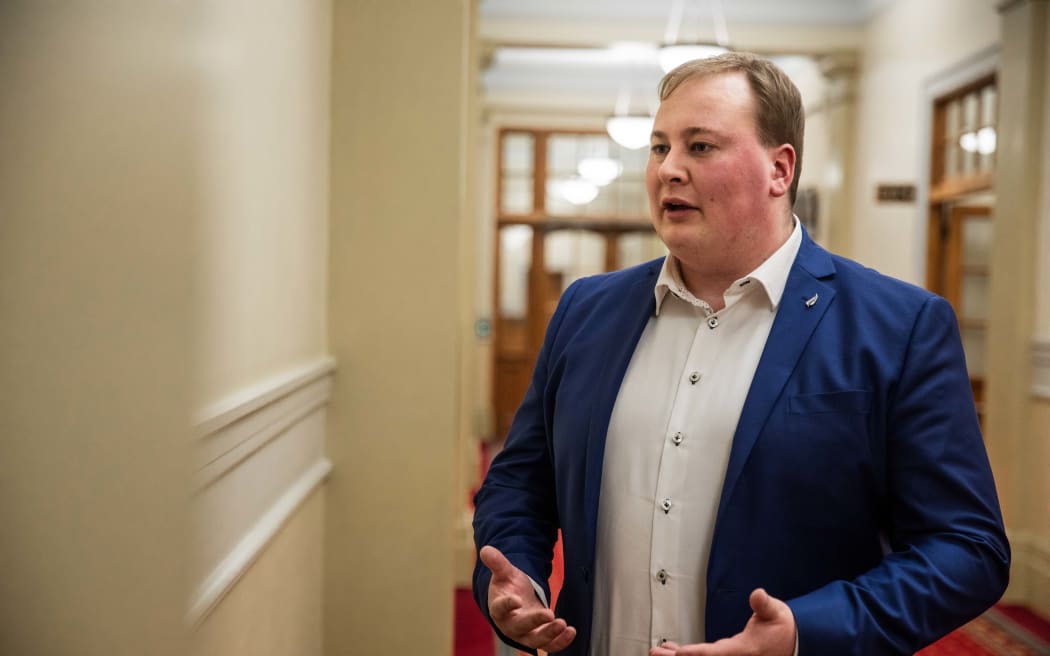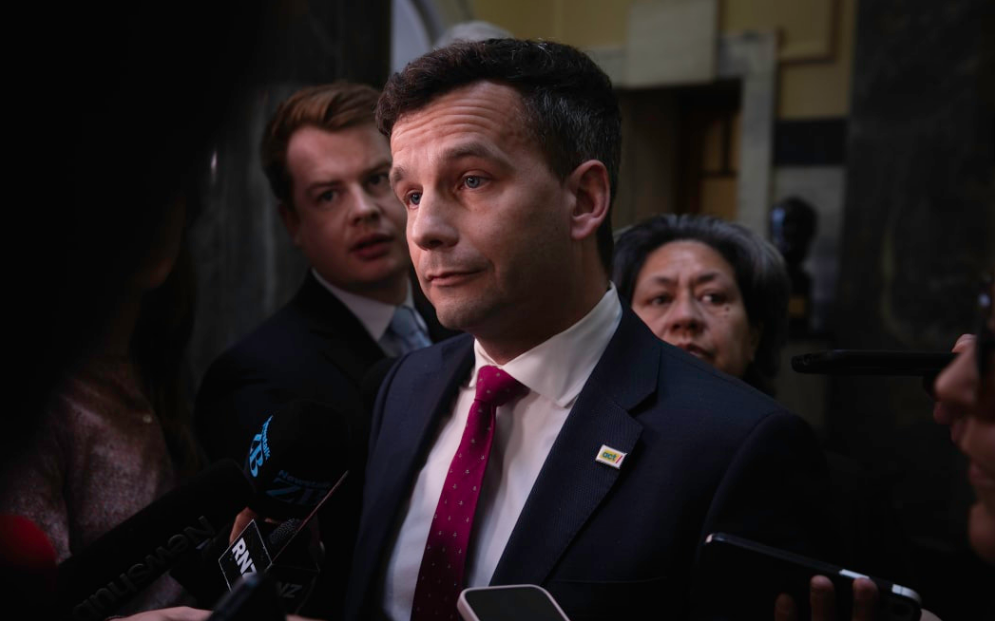
Public sector cuts would help do that, but a union says public servants face an anxious wait, with no analysis or structure to the proposed cuts.
After being sworn in on Monday, Luxon was ebullient.
"I really enjoyed today," he said. "It is genuinely an awesome responsibility and so I think the ceremony is incredibly weighty, that actually every minister understands the responsibility that they have."
Today he will be attending and leading his first Cabinet meeting, leading his new government to prepare a 100-day plan.
"Our number-one job is to fix the economy."
Economists warn of slow recovery
Chief economist Eric Crampton, from free market think tank the New Zealand Initiative, told RNZ the incoming government had two tools at its disposal to tackle inflation, both relying on setting expectations: cutting government spending, and refocusing the Reserve Bank solely on inflation - rather than also taking employment into consideration.
"Parliament has been adding fiscal pressure which makes the Reserve Bank's job harder and adds inflationary pressure to the economy," he said.

"None of that will restore prices to where they were before the bout of inflation - that is never the point of inflation targeting - but the rate of increase in prices should decline."
He said the coalition agreements between National and its two partners - ACT and New Zealand First - were not at this point looking "particularly" fiscally contractionary - slowing inflation - because there was no single large line item for reducing expenditure, though a range of smaller policies would have some effect.
"It's going to be a longer track back to a much higher level of expenditure than even had been promised by prime minister Ardern in 2019. I haven't seen much stronger promises for reduced fiscal expenditure in the coalition agreements."
Infometrics principal economist Brad Olsen said people should not be expecting inflation to come down immediately.
"There's still a lot of challenges apparent in the New Zealand economy - and, to be fair, the global economy - in particular inflation remains too high and although we are starting to get better results, inflation is still expected to be above the target band for a while yet.

He said the government could influence some things, "but it will also need to look at how it ensures that next time these challenges emerge - and there will be a next time - that the economy is best positioned to not let things get so far out of hand".
Olsen said the changes and effects would still take a while to trickle through - partly due to the machinery of government.
"Hundred-day plans, a lot of that's going to be about what's not going to happen quite as much, you hear the likes of some of the repeals and similar that are coming through, that's likely to be the focus for the first part of government ... it's then sort of waiting until the mini-Budget and more importantly the full Budget in May next year before some of those larger numbers come through."
That would include the promised tax cuts - not coming until that May Budget, and including a promise from National to "ensure the concepts of ACT's income tax policy are considered as a pathway to delivering National's promised tax relief, subject to no earner being worse off than they would be under National's plan".
Job cuts loom large for public sector
One way for agencies to cut spending would be job cuts.
Act leader David Seymour, newly named as Minister for Regulation, campaigned during the election on cutting the public service to its 2017 headcount - but has since revised that down to account for population growth and other factors.
"I'd start with a reduction to 2017 levels, that's the baseline in the Act-National coalition agreement, then I would allow for the increases in population and so on that genuinely have made the job bigger over the past six years," he told RNZ.
"And then no doubt, there will be some activities that people see as additional and vertical and want to retain. That's how you start off with 15,000 and perhaps end up with a figure somewhere around half that ... half of 15,000 is 7500."
He would not put a timeframe on when the cuts may begin, saying it would take some time to work through the important issues, but it was clear the government needed to save money.
"There's a lot of things to consider. One is what exactly are the things that the government really needs to do well? ... then of course you also got to bear in mind, the people themselves, many of whom will have redundancy clauses and costs built into the, into their contracts ... nonetheless, you've got to treat with respect and work through the obligations that the state has as an employer, as well," Seymour said.

Some projects - such as Industry Training projects, Three Waters and Labour's RMA replacements - could be shut down immediately, he said.
National's Finance Minister Nicola Willis will have the job of making the books balance and requiring deep enough cuts to avoid more borrowing.
During the election campaign, she repeatedly said it would be up to public service chief executives to find where cuts would be made, amounting to 6.5 percent of current spending - on top of the 2 percent cuts already announced by the then-Labour government.
PSA union organiser Duane Leo said the policies would take New Zealand backwards.
"They represent outdated and backward thinking," he said. "What we're concerned about is that this seems a very disorganised and unstructured approach. There's no substance, they haven't done any analysis that they said they'd be doing with the government departments.
"We're not talking about efficiencies anymore with the numbers of staff you're talking about. We're talking about deep cuts to public service workers - but also to the public services that they provide.
"What's 6.5 percent? As I said, initially, we were looking at 2 percent with the current government, now we're talking about 6.5 percent - they haven't got a direction about what they should be giving up, so they're just simply telling CEs 'you need to make these savings'."
Leo said the public sector was now faced with a lot of anxiety, frustration, and waiting.












